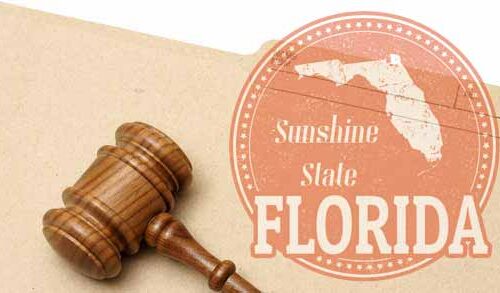Types of Discharge in the Military
If you are a member of the military who is stationed in Florida, you will need to go through the process of Military Discharge to leave the service. This can be a complicated process, so it’s important to understand all of the steps involved.
The first step is to submit a request for discharge from your commanding officer. This request must be submitted in writing and should include your reasons for wanting to leave the military. Once your commanding officer has received your request, they will review it and decide whether or not to grant your discharge.
If your commanding officer decides to grant your discharge, they will then provide you with a Certificate of Release or Discharge from Active Duty. This document will list all of the information about your discharge, including the date of your discharge, your character of service, and your reenlistment eligibility.
Once you have received your Certificate of Release or Discharge from Active Duty, you will need to take it to the nearest Military Entrance Processing Command (MEPCOM) office. At MEPCOM, you will complete the final steps of the Military Discharge process, including turning in your military ID card and completing exit counseling.
After you have completed the Military Discharge process, you will be a civilian again and will be able to start planning for your future. Military discharge can be a very exciting time, but it’s important to make sure that you understand all of the steps involved before you begin.
Types of Military Discharges
- Honorable Discharge: This is the most positive type of discharge. An honorable discharge indicates that you have met or exceeded the standards of conduct and performance expected of all military members.
- General Discharge: A general discharge is given when your service is considered satisfactory, but you have not met all of the standards expected of all military members.
- Other Than Honorable Conditions (OTH): An OTH discharge is given when your conduct has been dishonorable or if you have failed to meet the standards expected of military members. This type of discharge can make it difficult to find employment after leaving the military. If you receive an OTH discharge, it’s important to speak with a qualified attorney who can help you understand your rights and options.
- Bad Conduct Discharge (BCD): A BCD is given when your conduct has been dishonorable and you have failed to meet the standards expected of military members. This type of discharge can have a major negative impact on your life, so it’s important to speak with a qualified attorney if you receive a BCD.
- Dishonorable Discharge: A dishonorable discharge is the most serious type of discharge. It is reserved for cases where your conduct has been extremely dishonorable or where you have committed a serious crime. A dishonorable discharge can have a major negative impact on your life, so it’s important to speak with a qualified attorney if you receive one.
The type of discharge that you receive will have a major impact on your life after the military, so it’s important to understand all of your options before you make a decision.
Why Upgrade Military Discharge?
There are several reasons why you might want to upgrade your discharge. Maybe you received an Other Than Honorable Conditions (OTH) discharge and it’s been preventing you from getting a job. Or maybe you received a Bad Conduct Discharge (BCD) and you want to clear your record.
Military members may want to upgrade their discharge for several reasons, including:
- To improve employment prospects: An honorable discharge is the most positive type of discharge and can make it easier to find a job after leaving the military.
- To access benefits: Certain benefits, such as education benefits, are only available to those with an honorable discharge.
- To clear their record: Upgrading a discharge can remove any negative information from your military record.
If you are interested in upgrading your discharge, you will need to submit a request to your commanding officer. This request must be submitted in writing and should include your reasons for wanting to upgrade your discharge. Once your commanding officer has received your request, they will review your case and make a decision.
What Are the Consequences of an Other Than Honorable Discharge?
- An other than honorable (OTH) discharge is the second most serious type of military discharge. It is given when your conduct has been dishonorable or if you have failed to meet the standards expected of all military members. An OTH discharge can have a major negative impact on your life, so it’s important to understand all of the consequences before you make a decision. Some of the consequences of an OTH discharge include:
- Loss of benefits: You will no longer be eligible for any benefits, including education benefits and health care.
- Difficulty finding employment: An OTH discharge can make it difficult to find a job after you leave the military. Many employers are hesitant to hire someone with an OTH discharge on their record.
- Ineligibility for reenlistment: If you receive an OTH discharge, you will not be able to reenlist in the military.
If you are facing an OTH discharge, it’s important to speak with a qualified attorney who can help you understand your rights and options. An attorney can also help you navigate the process of appealing your discharge if you believe that you have been wrongly accused.
What Are the Consequences of a Bad Conduct Military Discharge?
- A bad conduct discharge (BCD) is given when your conduct has been dishonorable and you have failed to meet the standards expected of military members. This type of discharge can have a major negative impact on your life, so it’s important to speak with a qualified attorney if you receive a BCD. Some of the consequences of a BCD include:
- Loss of benefits: You will no longer be eligible for any benefits, including education benefits and health care.
- Difficulty finding employment: A BCD can make it difficult to find a job after you leave the military. Many employers are hesitant to hire someone with a BCD on their record.
- Ineligibility for reenlistment: If you receive a BCD, you will not be able to reenlist in the military.
If you are facing a BCD, it’s important to understand all of your rights and options.
What Are the Consequences of a Dishonorable Discharge?
- A dishonorable discharge (DD) is the most serious type of military discharge. It is given when your conduct has been dishonorable and you have failed to meet the standards expected of all military members. A DD can have a major negative impact on your life, so it’s important to understand all of the consequences before you make a decision. Some of the consequences of a DD include:
- Loss of benefits: You will no longer be eligible for any benefits, including education benefits and health care.
- Difficulty finding employment: A DD can make it difficult to find a job after you leave the military. Many employers are hesitant to hire someone with a DD on their record.
- Ineligibility for reenlistment: If you receive a DD, you will not be able to reenlist in the military.
If you have any questions about Military Discharge in Florida, please contact a qualified attorney who can help guide you through the process.




